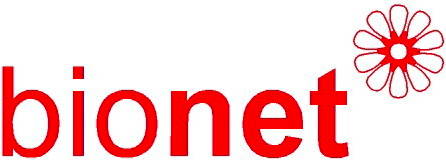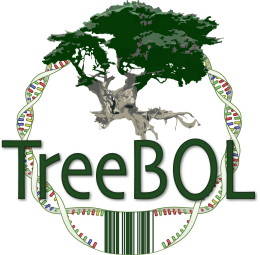Primera Reunión de ArBOL
METAS DE LA REUNION
- Introducir los códigos de barras de ADN a la Comunidad Botánica Neotropical
- Estructurar ArBOL (cobertura regional, afiliaciones y plan de trabajo)
- Identificar entidades potenciales de financiación y usuarios de la región
- Escribir una propuesta modelo de subvención para ser sometida a entidades financiadoras internacionales, regionales y locales
- Escribir un prospecto de dos páginas para entidades financiadoras potenciales
LOGÍSTICA
- Dónde: Universidad de los Andes, Bogotá, Colombia
- Cuándo: Octubre 30-31, 2008
PARTICIPANTES
Brasil
Colombia
- Dairon Cárdenas | SINCHI | dcardenas@sinchi.org.co
- Rocio Cortes | Herbario Forestal Colombiano | retiniphyllum@yahoo.com
- Ricardo Callejas | Universidad de Antioquia | callejas@matematicas.udea.edu.co
- Santiago Madriñán | Univ. de los Andes, Bogotá | samadrin@uniandes.edu.co
- Pablo Stevenson | Univ. de los Andes, Bogotá | pstevens@uniandes.edu.co
Ecuador
Guyana Francesa
-
Alain Franc | INRA | Alain.Franc@pierroton.inra.fr
-
Caroline Scotti-Saintagne | ECOFOG | Caroline.Scotti@ecofog.gf
Perú
- Euridice Honorio | IAAP | eurihc@yahoo.com
- Carmen Rosa Garcia | IAAP | cdavila19@yahoo.com
Venezuela
-
Gerardo A. Aymard | UNELLEZ | gaymard@cantv.net
-
Gustavo Fermín | Universidad de los Andes, Mérida | fermin@ula.ve
Iniciativas forestales regionales:
- CTFS: Andy Jones | JonesF@si.edu
- CIAT: Juliana Chacón | J.Chacon@CGIAR.ORG
- CORFOR: Alvaro Duque | ajduque@unalmed.edu.co
- RAINFOR: Rodolfo Vásquez | Rodolfo.Vasquez@mobot.org
- TreeBOL: Damon Little | dlittle@nybg.org
- TreeBOL-Asia: James R. Richardson | J.Richardson@rbge.ac.uk
AGENDA
Miércoles
Llegada de los participantes; registro en Hotel Bacatá
Jueves AM
- Códigos de barras de ADN y CBOL
- Códigos de barras de ADN en plantas y TreeBOL
- Presentaciones de pares nacionales
- Presentación de las Iniciativas Regionales Forestales
Jueves PM
- Asuntos científicos
- Estructura de ArBOL
- Países, Museos Institucionales, Laboratorios y Personas
- Grupos de usuarios
- Entidades financiadoras (Internacionales, Regionales, Locales)
- Asuntos legales
- Compartir información, redes de trabajo, Sitio de Internet
Viernes AM
- Propuesta Modelo de Subvención
- Antecedentes, alcance, objetivo, justificación
- Metas
- Sitios, taxones
- Repositorio de muestras y Bancos de ADN
- Trabajo molecular
- Resultados esperados
- Presupuesto
- Estrategias de comunicación
Viernes PM
- Modelo final de la propuesta de subvención
- Plan de trabajo de ArBOL
- Agenda a futuro
Sábado
Opcional: Visita al Parque Nacional Natural Chingaza (ver Flora Ilustrada del Páramo de Chingaza)
RESUMEN
The meeting gathered 20 botanists, plant ecologists and molecular biologists from seven Latin American countries: Brazil, Colombia, Ecuador, French Guiana, Panama, Peru, and Venezuela, all of whom are interested in the development of plant identification through the use of DNA Barcodes. Amongst the participants at the meeting there were representatives from universities, research institutes, and regional forestry initiatives.
After a presentation by Santiago Madriñán on DNA barcoding background, history, aims and existing initiatives, Damon Little from TreeBOL summarized the TreeBOL project and CBOL’s PWG developments. Each of the participants addressed the group with talks on their particular research, interests and resources.
The main objective of the Consortium was defined as the use of DNA bar-coding to aid in the identification problems with Neotropical tree species. This was considered paramount for the development of comparative ecological studies, conservation strategies, phylogenetics and historical biogeography of neotropical plants. We outlined a project proposal that should be interesting, not only to the scientific community, but to society as a whole since it will help make plant identification more accessible to the general public.
All of the participants showed great interest in the goals of the consortium and offered their support providing infrastructure, information, knowledge and their time in order to work towards the development of a collective project.
All together the Consortium has information and collection material from permanent vegetation plots that add up 360ha, distributed throughout the six countries and amongst different ecosystems. Also, the consortium has access to at least one DNA sequencing laboratory in each of the participating countries.
Each country is participating initially with two scientists, one botanist and one molecular biologist; they are the country coordinators and are committed to find other scientists and organizations that would like to participate in the project development. The regional forestry initiatives offered their regional knowhow in terms of established plots and institutional connections, as well as help in identifying international funding sources.
A pre-project idea based on ITTO (International Tropical Timber Organization) format was drafted and sent to previously contacted members of this organization, who showed interest in the project goals. Additional regional funding sources were discussed such as EU grants. Local funding sources within each country were also discussed.
The steering committee (Cassio van den Berg and Santiago Madriñán) prepared a summary presentation of the meeting, which was delivered at the second TreeBOL meeting in New York the following week, where ArBOL was highlighted as the better organized regional TreeBOL chapter.
During the first semester 2009, all participants will gather the necessary information for a proper proposal to be drafted by the steering committee by mid 2009.




